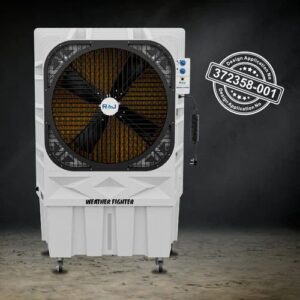Air Cooler Industrial Product Description
An industrial air cooler is a powerful and efficient cooling solution designed for large spaces such as warehouses, factories, and outdoor events. These units utilize evaporative cooling technology to lower the ambient temperature, making them an ideal choice for environments where traditional air conditioning systems may be impractical or too costly. Industrial air coolers are known for their energy efficiency, low maintenance requirements, and ability to provide a comfortable working environment even in extreme heat conditions.
Uses of Industrial Air Coolers
- Warehouses: Maintain optimal temperature levels to protect goods and enhance worker comfort.
- Manufacturing Facilities: Improve air quality and reduce heat stress for employees working with machinery.
- Outdoor Events: Provide cooling solutions for festivals, concerts, and sporting events.
- Agricultural Settings: Help in maintaining ideal conditions for livestock and crops.
- Construction Sites: Offer temporary cooling solutions for workers in hot weather.
Technical Data
| Feature | Specification |
|---|---|
| Cooling Capacity | 10,000 – 50,000 CFM |
| Power Consumption | 1.5 – 5.0 kW |
| Water Tank Capacity | 50 – 200 liters |
| Airflow Direction | Adjustable (4-way) |
| Noise Level | 60 – 75 dB |
| Weight | 100 – 300 kg |
| Dimensions (L x W x H) | 1.2m x 1.2m x 1.5m |
| Material | Galvanized steel / Plastic |
| Control Type | Manual / Remote |
| Operating Temperature | 20°C – 45°C |
| Warranty | 1 – 2 years |
Key Features
- Energy Efficient: Consumes less power compared to traditional air conditioning systems.
- Environmentally Friendly: Uses water for cooling, reducing reliance on refrigerants.
- Portability: Many models come with wheels for easy movement between locations.
- Low Maintenance: Simple design allows for easy cleaning and upkeep.
- Durability: Built to withstand harsh industrial environments.
Industrial air coolers are an essential investment for businesses looking to enhance productivity and comfort in large spaces while keeping operational costs low.

